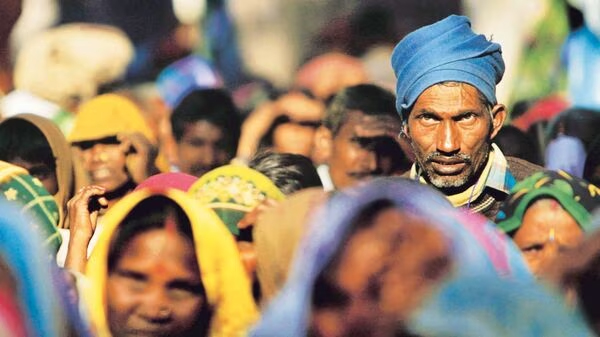Biju Dharmapalan
Even though scientifically we are one species Homo sapiens, human beings continue to show discrimination based on religion, race and caste. It’s a shame for our country in particular and humanity as a whole when people kill each other in the name of caste, religion and race in different parts of the country. Most of the so-called developed countries have reached the level that we see today as they were able to do away with this social mischief. Unfortunately in our country caste is a dominating player in our social set-up. To preserve the dignity of one’s caste even parents are killing their children who try to move away from the clutches of caste rules. People make relationships, friendships and even helping hands based on caste factors.
The caste system in India is a complex social structure that has evolved over thousands of years. Its origins are deeply rooted in historical, religious, and social factors, that have it’s roots from the Vedic times onwards. During Vedic time (1500 – 500 BCE) society was divided into four main groups known as Varnas: Brahmins (priests and scholars), Kshatriyas (warriors and rulers), Vaishyas (merchants and farmers), and Shudras (labourers and service providers). But these varnas were originally not meant to be rigid, hereditary classes but rather occupational categories. The caste system that we see today was initiated during the post-Vedic period when more rigid ‘Jathis’ emerged from the varnas. Around the 6th century BCE, religious movements led by figures like Buddha and Mahavira challenged the hierarchical nature of the caste system. They preached spiritual equality and advocated for the rejection of caste-based discrimination. However the colonial British rule, as part of their policy of divide and rule, reinstated the social divisions. They introduced census operations that classified people into various castes and communities. This had the effect of reinforcing existing social divisions.
The great spiritual philosopher from Kerala Sree Narayana Guru advised people to follow the ” one caste, one religion, one god” philosophy for the betterment of humanity. Unfortunately, even in his home state, no one is following this in true spirit. The Christian missionaries who converted native people on the belief that Christianity does not follow a caste system and gives respect to everyone are also bereft of a culture of oneness. In fact, few Christian sects in Kerala are more fanatic than any other community in the country. It seems that caste is a deeply ingrained aspect of Indian society, its reflection can be seen in every religious group in the country.
Even after 75 years of independence despite efforts to dismantle the formal caste system through legal means, caste-based discrimination and social stratification continue to be significant challenges in contemporary India. It is at this juncture, that the demand by the opposition parties in “INDIA” pushing for a nationwide caste census comes as a retrogressive step. What do our political parties expect from this? Do they want to reinstate the caste sentiments in the mindset of our youngsters? Are they promoting the historical wrongs our predecessors have done and want our youngsters to fight against one another along caste lines? Are they not interested in seeing our country as a developed nation? Politicians should not play petty electoral politics by fooling people. If we look at the developed nations we can see that none of the countries have caste hierarchy in their social structure as we see in our country.
What is the ultimate objective of pushing for a caste census? If it is for the upliftment of a community/ caste by providing reservations, previous experience shows that it has failed miserably as the community that receives reservations remains backward even today.
What is the use of giving reservations to the children of government servants based on caste lines? Government support can be provided for one generation for their upliftment. There is no meaning in providing reservations to the next generation, as these people have been lifted from the marginalized category. Many communities that had been the dominant earlier are becoming marginalized now. Irrespective of caste, governments should support every citizen who is marginalized based on their financial status.
Instead of a caste-based census, our political parties should take steps to conduct a census on the educational profile and professional profiles of citizens. This can help the government to devise policy measures to identify gaps that impede our development and help to bridge that gap. If we keep on continuing the historical mistakes our predecessors had done to society, our country cannot move forward in our vision to rise to the level of a developed nation. Let our political parties join hands in pushing forward to that, through changes in political thinking that speak not of caste or religion, but of the development and prosperity of the nation.
(The author is an adjunct faculty at the National Institute of Advanced Studies, Bangalore)
Trending Now
E-Paper


